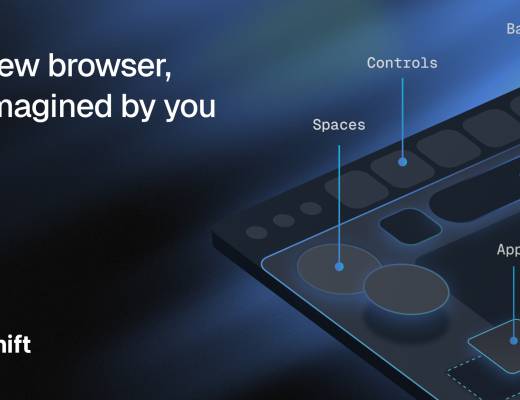The US Department of Homeland Security (DHS) recently revealed plans to revamp the H-1B visa lottery system to reduce fraud and promote entrepreneurship. The proposed system would choose H-1B visa registrations based on distinct beneficiaries, effectively removing cases of multiple submissions. This new approach aims to ensure a fairer distribution of visas and provide equal opportunities for qualified applicants while minimizing instances of abuse. Additionally, by prioritizing individual beneficiaries, the updated system seeks to support the growth of small businesses and the development of unique talent in the United States.
Proposed Changes to H-1B Visa Lottery System
The DHS’s proposed revamp of the H-1B visa lottery system includes several significant changes. One of the most notable changes is the approach to selecting beneficiaries. Instead of choosing H-1B visa registrations based on a random lottery, the new system would focus on unique applicants to minimize the risk of fraud and abuse.
Additionally, the proposal includes guidelines for optional worksite visits and clarification on requirements for new visa petitions when there’s an alteration in employment details. These changes aim to provide greater transparency and accountability while ensuring that visa recipients meet the necessary qualifications for their jobs.
Encouraging Entrepreneurship
Aiming to encourage entrepreneurial ventures, the proposal enables visa petitioners to be considered as employers, even if they possess the majority ownership stake in their businesses. This initiative effectively removes the previous hindrance faced by entrepreneurs who initially struggled to sponsor their own visa applications due to their majority stakes.
By incorporating these changes, the proposal is poised to boost innovation and contribute to economic growth, as it allows talented and ambitious individuals to establish and develop their businesses in a more supportive environment. Nonetheless, beneficiary-owned businesses will only receive visas with an 18-month duration for the initial petition and first visa extension.
This new regulation aims to provide adequate time for beneficiary-owned businesses to establish their presence and operations in the United States. Additionally, it ensures that these businesses adhere to the requirements and conditions of the visa program, contributing positively to the economy while mitigating potential misuse or fraud.
Simultaneous Employment and Redefinition of Cap-Exempt H-1B Visas
The proposed plan also allows simultaneous employment with up to two employers, providing flexibility and opportunities for highly skilled foreign workers to contribute to various projects and industries.
A redefinition of cap-exempt H-1B visas is in the works, with DHS shifting its emphasis from primarily research-oriented roles to include positions that involve “fundamental activity” in research. This change aims to make it easier for highly skilled workers to contribute to multiple projects and collaborate with different employers, providing a more flexible approach in an increasingly competitive global market.
By broadening the scope of cap-exempt H-1B visas, the United States hopes to attract and retain top talent in various research and innovation-driven fields, ultimately boosting its economic growth and technological advancements.
Specialty Occupation Requirement
Job openings requiring only generic degrees will no longer qualify; instead, petitioners need to establish a direct connection between the qualifying degree field and the position in question to prove a “specialty occupation.” This change aims to ensure that foreign workers with specialized skills are filling positions that truly demand their expertise, ultimately protecting the American workforce.
Employers must now provide ample evidence demonstrating the direct correlation between the degree requirements and the job responsibilities to successfully file petitions for H-1B visa workers.
Conclusion
This proposed revamping of the H-1B visa lottery system marks a significant stride in simplifying the process and promoting responsible entrepreneurship throughout the United States. Simplifying the application process, allows for a more efficient allocation of these work visas to the most deserving candidates, ensuring that top talent from around the globe can contribute to the American economy.
Moreover, this revamp will encourage entrepreneurs to bring innovative ideas and solutions, ultimately fostering job creation and technological development within the nation.
Frequently Asked Questions
What is the main goal of the proposed H-1B visa lottery system revamp?
The main goal of the proposed H-1B visa lottery system revamp is to reduce fraud, promote entrepreneurship, and ensure a fairer distribution of visas. This is achieved through selecting unique applicants, minimizing abuse, and supporting small businesses in the United States.
How will the new system focus on unique applicants?
The new system will focus on unique applicants by choosing H-1B visa registrations based on distinct beneficiaries. This will help minimize cases of multiple submissions, reducing fraud and abuse in the visa lottery system.
How does the proposed system encourage entrepreneurship?
The proposed system encourages entrepreneurship by allowing visa petitioners to be considered as employers, even if they possess a majority ownership stake in their businesses. This makes it easier for entrepreneurs to sponsor their own visa applications and grow their businesses in the United States.
What changes are being made to cap-exempt H-1B visas?
The definition of cap-exempt H-1B visas is being broadened to include positions that involve “fundamental activity” in research, in addition to primarily research-oriented roles. This allows highly skilled workers to contribute to multiple projects and collaborate with different employers, promoting flexibility and innovation in the American workforce.
What is the new “specialty occupation” requirement?
The new “specialty occupation” requirement mandates that job openings requiring only generic degrees will no longer qualify for H-1B visas. Instead, employers must establish a direct connection between the qualifying degree field and the position in question, proving that the foreign worker’s specialized skills are necessary for the job.
First Reported on: hindustantimes.com
Featured Image Credit: Photo by Antoni Shkraba; Pexels; Thank you!







